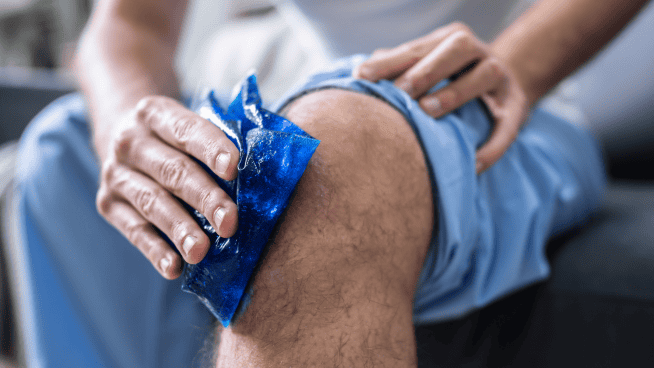The Best Post-Workout Supplements and Nutrition
I constantly see athletes looking for ways to make their workouts harder and more intense. But athletes also need to think about how to balance their performance with recovery. The nutrients you consume after a tough workout help your body build and repair muscle after exercise. Here are some of the most important nutritional supplements you should take after working out.
Best Post-Workout Supplements
Protein
The highest quality protein is whey, and it comes in three different forms: isolate, concentrate and hydrolyzed. Isolate contains the highest proportion of protein per serving at 90 to 93 percent. Concentrate is roughly 80 to 85 percent protein. Hydrolyzed digests the fastest and converts to protein that the body can use.
Whey is also high in leucine, the amino acid that increases the cells’ ability to synthesize protein. Ideally, you want to consume 3 to 4 grams of leucine in your post-workout meal. Thirty grams of whey is optimal, 20 for women and small-framed men. To calculate the correct amount for your body, multiply your lean body mass (in kg) by 0.5.
Carbohydrates
Post-workout carbs work best for endurance athletes who need to replenish muscle glycogen stores and for athletes who have trouble with glycogen levels because they train first thing in the morning on an empty stomach. Otherwise, you can still benefit from post-workout carbs—just be careful not to miscalculate. What doesn’t go back to storage will be converted to fat.
If you are an endurance athlete and you have trained for an hour or more, look for a carb-to-protein ratio of 4:1 (120 grams of carbs to 30 grams of protein) to maximize recovery. If you are a strength athlete, a ratio of 2:1 (60 grams of carbs to 30 grams of protein) is better because you expend less energy.
Glutamine and Branch-Chain Amino Acids (BCAAs)
Glutamine is the most abundant amino acid in muscle tissue, and it can be depleted during intense training. Ideally consume 10-15 grams after a workout. The BCAAs—leucine, isoleucine and valine—help power you through your workouts during hard training. They also help regulate the creation of new muscle and reduce muscle breakdown. Since they are not produced by the body, we get them entirely through our diet.
Vitamins C and B6
Vitamin C is a powerful antioxidant. It reduces the level of cortisol, a stress hormone, which can cause imbalance in your anabolic hormones and blood sugar. Endurance athletes experiencing high levels of oxidative stress from exercise benefit most from vitamin C. Strength athletes also benefit if they are in an intense training phase. I recommend 1000 mg post-workout.
Vitamin B6 helps the body synthesize protein and make new muscle mass. The more protein you consume, the more B6 you need. Supplement with 100 mcg after a workout.
Read more:
RECOMMENDED FOR YOU
The Best Post-Workout Supplements and Nutrition
I constantly see athletes looking for ways to make their workouts harder and more intense. But athletes also need to think about how to balance their performance with recovery. The nutrients you consume after a tough workout help your body build and repair muscle after exercise. Here are some of the most important nutritional supplements you should take after working out.
Best Post-Workout Supplements
Protein
The highest quality protein is whey, and it comes in three different forms: isolate, concentrate and hydrolyzed. Isolate contains the highest proportion of protein per serving at 90 to 93 percent. Concentrate is roughly 80 to 85 percent protein. Hydrolyzed digests the fastest and converts to protein that the body can use.
Whey is also high in leucine, the amino acid that increases the cells’ ability to synthesize protein. Ideally, you want to consume 3 to 4 grams of leucine in your post-workout meal. Thirty grams of whey is optimal, 20 for women and small-framed men. To calculate the correct amount for your body, multiply your lean body mass (in kg) by 0.5.
Carbohydrates
Post-workout carbs work best for endurance athletes who need to replenish muscle glycogen stores and for athletes who have trouble with glycogen levels because they train first thing in the morning on an empty stomach. Otherwise, you can still benefit from post-workout carbs—just be careful not to miscalculate. What doesn’t go back to storage will be converted to fat.
If you are an endurance athlete and you have trained for an hour or more, look for a carb-to-protein ratio of 4:1 (120 grams of carbs to 30 grams of protein) to maximize recovery. If you are a strength athlete, a ratio of 2:1 (60 grams of carbs to 30 grams of protein) is better because you expend less energy.
Glutamine and Branch-Chain Amino Acids (BCAAs)
Glutamine is the most abundant amino acid in muscle tissue, and it can be depleted during intense training. Ideally consume 10-15 grams after a workout. The BCAAs—leucine, isoleucine and valine—help power you through your workouts during hard training. They also help regulate the creation of new muscle and reduce muscle breakdown. Since they are not produced by the body, we get them entirely through our diet.
Vitamins C and B6
Vitamin C is a powerful antioxidant. It reduces the level of cortisol, a stress hormone, which can cause imbalance in your anabolic hormones and blood sugar. Endurance athletes experiencing high levels of oxidative stress from exercise benefit most from vitamin C. Strength athletes also benefit if they are in an intense training phase. I recommend 1000 mg post-workout.
Vitamin B6 helps the body synthesize protein and make new muscle mass. The more protein you consume, the more B6 you need. Supplement with 100 mcg after a workout.
Read more:








